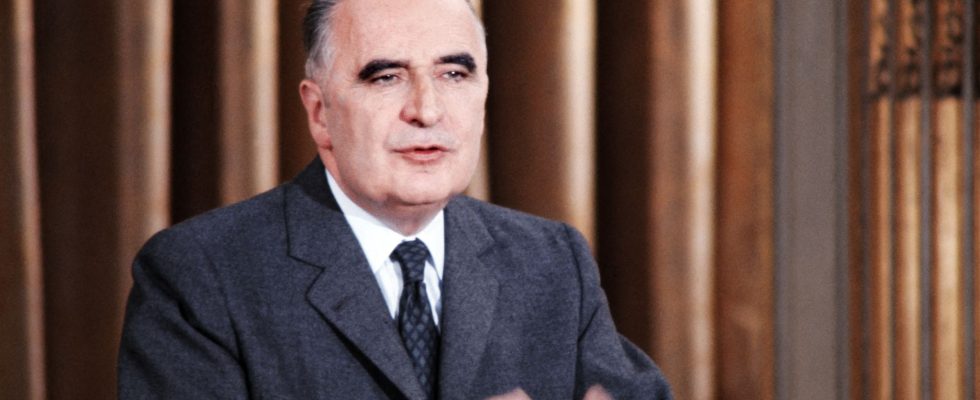The fiftieth anniversary of the death of Georges Pompidou was little celebrated. Christophe Tardieu and David Lisnard published an inspired essay on the modernity of the former president (Lessons from Pompidou, published by Éditions de l’Observatoire); Michaël Miguères and Pierre Manenti organized a conference at the National Assembly attended by political and intellectual figures. Other than that, not much to note.
During this conference, the majority deputy Benjamin Haddad even observed with regret that no political figure claimed to be a Pompidou even though the figure of De Gaulle was at the origin of constant recoveries, more or less legitimate, sometimes even by people who would not hesitate to throw France into the arms of Russia like Pétain sold our country to Germany.
Independence and power
Drawing lessons from the Pompidolian era for today must be done with caution. Society has changed. The emergence of Asia, Islamism, the debt economy, the arrival of 24-hour news channels and social networks have profoundly influenced the nature of the challenges we face as well as the public framework in which politics is exercised. There are, however, three elements of Pompidou’s methods which remain valid and which our leaders would do well to think about.
The first concerns the meaning given to politics. The proactive industrial policy or the cautious budgetary policy carried out under the Pompidou era had not only prosperity in their sights but also a certain idea of France and the role it should play in the world. For Pompidou, as for his predecessor, public finances in order were a condition for independence, credibility, influence and therefore power. Today, economic policy is “de-finalized”. We “advance”, we “reform”, we “modernize” without knowing why. This defect is even more visible at the European level. The European Union still sees itself as a market to defend, without being aware of its role in the world. If this were the case, its first political act in terms of artificial intelligence (the AI Act) would not have been a movement of strict regulation but of support for the development of this sector.
Ten-year vision
Pompidou’s second teaching is the need to raise one’s nose to see far. In fact, our leaders spend their lives managing emergencies and resolving the problems of the day, even yesterday. However, questions of innovation, education and public finance require looking at five or ten years. Hence the importance of having a vision – in which we return to the first lesson – which anchors a policy in a direction. Let’s take a concrete example. The government has just announced a series of measures to improve French people’s access to healthcare: “rabbit” tax, prescription of certain antibiotics by pharmacists, experiments to allow our fellow citizens to have direct access to certain specialists. Alright. These measures are going in the right direction. But they are not part of a vision of our health system. We are repairing the 20th century system, without ever thinking about what health is in the 21st century, in the era of biotechnology and artificial intelligence.
Uninhibited supply policy
Pompidou’s third teaching requires attacking the root of problems rather than their consequences. As his industrial advisor Bernard Esambert testified, Pompidou knew that France’s economic and social development found its source in businesses, which is why he pursued an uninhibited supply-side policy. Far from the Epinal image of large industrial programs, Esambert says that Pompidou liked to receive SME bosses, to whom he listened attentively to make their lives easier (the famous “stop annoying the French”).
The result was that, from 1969 to 1973, France’s economic performance surpassed the average of that of developed countries and industry and foreign trade flourished. A State in its place and well managed and economic freedom in the service of great ambitions: simple and eternally relevant ideas.
Nicolas Bouzou, economist and essayist, is director of the consulting firm Astères
.
